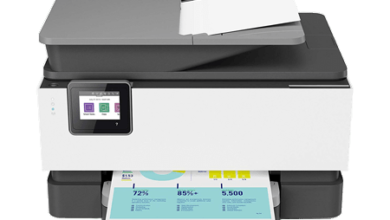Medical Software Development Costs: A Comprehensive Guide

Hiring a medical software development company is a critical decision for healthcare providers aiming to optimize their operations through custom software solutions. The cost of medical software development can vary greatly depending on a variety of factors. In this blog, we will break down the key components that determine the pricing for custom healthcare software development and help you plan your budget accordingly.
Key Factors Influencing Medical Software Development Costs
The cost of building medical software is not fixed. It can range from a few thousand dollars to millions, depending on several crucial factors. Understanding these factors will help you make informed decisions when hiring a healthcare software development company.
1. Complexity of the Software
The more complex the software, the higher the development cost. Custom healthcare software can range from a basic scheduling system to a full-fledged electronic health record (EHR) or telemedicine platform. Here are some common software types and their complexity:
- Simple Applications: A straightforward appointment scheduling system or a basic medical records management tool might cost anywhere between $15,000 and $50,000.
- Medium-Complexity Software: Software like telemedicine applications or patient management systems that require data integration and enhanced features may cost $50,000 to $150,000.
- High-Complexity Software: Comprehensive solutions, such as EHR systems, AI-based diagnostic tools, or fully integrated hospital management systems, can cost upwards of $150,000 and even exceed $500,000, depending on the scope.
2. Development Team Expertise
The level of expertise required from the medical software development company plays a significant role in determining costs. A team with specialized skills in healthcare software development, regulatory compliance (HIPAA, GDPR), and integration with existing systems can command a higher price. You may also need to account for the cost of project managers, quality assurance testers, and user experience designers.
Choosing a development team with proven experience in healthcare software development is essential. They will help you navigate regulatory challenges and ensure that the final product meets industry standards.
3. Custom Features and Functionalities
Every healthcare software project comes with unique requirements. Features such as integration with third-party applications, real-time data analytics, or patient portals can increase the overall cost. Custom features often require more time to develop and test.
Here are some examples of features that can impact the cost:
- Data Security & Compliance: Software built to comply with healthcare regulations like HIPAA or GDPR will require additional features, which can increase development time and cost.
- Integration with Other Systems: If your software needs to integrate with existing systems like EHRs or laboratory equipment, expect additional costs for system integration and testing.
- User Interface (UI) and User Experience (UX): An intuitive UI and smooth UX are crucial in healthcare applications to ensure ease of use. Designing these features can significantly add to the project cost.
4. Development Time
The length of time needed to complete the project is another determining factor in the cost of medical software development. On average, development can take anywhere from three months to over a year. Larger and more complex systems will naturally take longer to develop.
A basic healthcare software project might be completed in a few months, while enterprise-level systems will take much longer. This extended development timeline often correlates with a higher cost due to the increased number of hours required.
5. Maintenance and Support
The development cost is just one part of the equation. You also need to account for ongoing maintenance and support. Healthcare software, like any other system, requires regular updates, bug fixes, and compliance checks. Many medical software development company offer maintenance packages as part of their services.
- Ongoing Updates: Software must evolve over time to meet new technological and regulatory requirements. This often means additional costs for updates and security patches.
- Technical Support: A healthcare software solution will need to be supported after launch, including user training, troubleshooting, and addressing issues that arise.
These ongoing costs can represent a significant portion of the total investment over the software’s lifecycle.
How to Estimate the Cost of Hiring a Healthcare Software Development Company
Now that we understand the factors influencing costs, let’s break down how to estimate the cost when hiring a healthcare software development company. Here are steps to guide your budgeting process:
Step 1: Define Your Requirements
Before reaching out to a development company, define your project’s scope. Consider what type of software you need and the features it should have. Are you looking for a simple system, or do you require a highly specialized solution? Clearly outlining these requirements will give the development company a better understanding of the project and enable them to provide a more accurate estimate.
Step 2: Get Multiple Quotes
Once you have a clear idea of what you need, reach out to multiple healthcare software development companies. Each company will likely offer a different pricing structure based on their expertise, location, and approach. Comparing quotes will help you understand the average cost and find a company that fits your budget.
Step 3: Assess the Development Process
Look at the development company’s process. A well-established company will have a structured methodology, including clear milestones and timelines. This structured approach ensures the project stays on track and reduces the risk of cost overruns.
Step 4: Factor in Hidden Costs
When budgeting for healthcare software development, don’t forget to factor in additional costs, such as:
- Licensing Fees: If your software uses third-party libraries or tools, there may be licensing costs.
- Infrastructure Costs: Depending on your hosting and storage needs, infrastructure costs (like cloud hosting) can add up.
- Training: If your team needs training to use the new software, this cost should be included in your budget.
Conclusion
Hiring a healthcare software development company is a significant investment, but it can lead to a considerable return in terms of improved efficiency, patient care, and compliance. The total cost will vary based on complexity, team expertise, features, and development time. By understanding these factors and setting a clear budget, you can make an informed decision and ensure your software project aligns with your goals.
In the end, a quality healthcare software solution can streamline operations, ensure regulatory compliance, and enhance patient satisfaction, making the investment worthwhile. So, when planning your healthcare software project, take the time to assess your needs, budget appropriately, and work with a reliable development partner.



